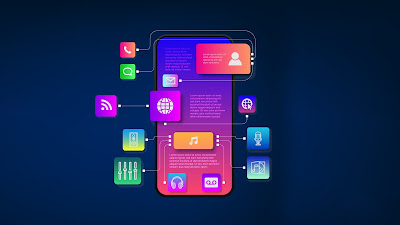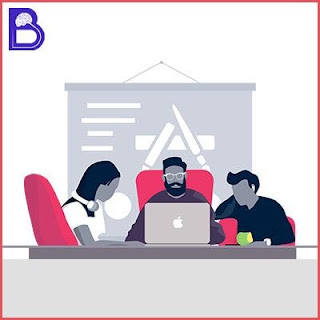In the realm of mobile app development, staying ahead of the
curve is paramount. With the advent of Web 2.0, the landscape has undergone a
paradigm shift, presenting both challenges and opportunities for mobile app
development companies and developers alike.

Web 2.0 signifies a user-centric approach, characterized by
interactivity, collaboration, and user-generated content. For mobile app
development companies, this presents a golden opportunity to create apps that
seamlessly integrate with the user's digital ecosystem, offering personalized
experiences that resonate deeply.
One of the most significant advantages of Web 2.0 for mobile app developers is the abundance of APIs and frameworks that facilitate rapid development and deployment. These tools empower developers to leverage existing technologies and services, enabling them to focus more on innovation and less on reinventing the wheel. Whether it's integrating social media platforms for enhanced engagement or harnessing machine learning algorithms for predictive analytics, the possibilities are endless.
Furthermore, Web 2.0 opens doors to new monetization strategies for mobile app development companies. Through subscription-based models, in-app purchases, and targeted advertising, companies can generate sustainable revenue streams while delivering value to their users. Additionally, the proliferation of microtransactions and peer-to-peer payment systems presents innovative avenues for monetization, fostering a thriving app economy.
However, embracing Web 2.0 also brings forth its share of challenges. With increased user expectations for seamless experiences across devices and platforms, mobile app developers must prioritize interoperability and compatibility. Cross-platform development frameworks such as React Native and Flutter have emerged as indispensable tools, allowing developers to build apps that run smoothly on multiple platforms without compromising performance
or user experience.
Moreover, the democratization of content creation facilitated by Web 2.0 means that mobile app development companies must continuously innovate to stand out in a crowded marketplace. User feedback loops, agile development methodologies, and data-driven decision-making are essential pillars for staying agile and responsive to evolving user needs and preferences.
In conclusion, Web 2.0 has transformed the landscape of Mobile App Development, ushering in an era of unprecedented innovation and collaboration. By embracing the principles of interactivity, collaboration, and user empowerment, mobile app development companies can unlock new opportunities for growth and differentiation in an ever-evolving digital ecosystem.

.jpg)


Comments
Post a Comment